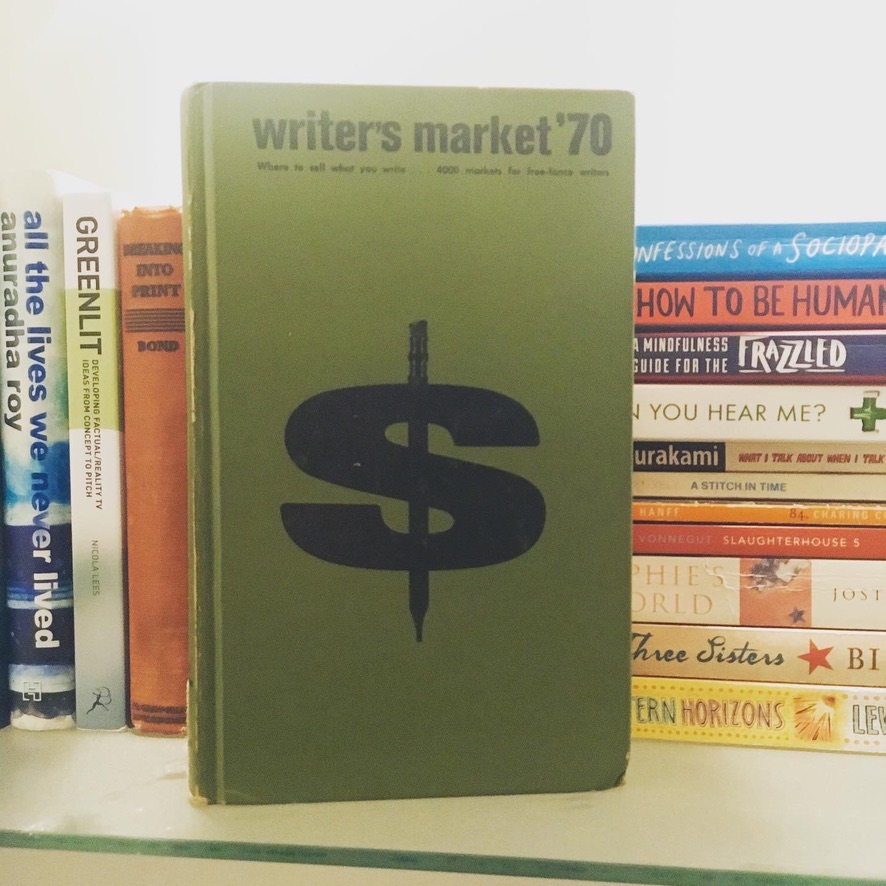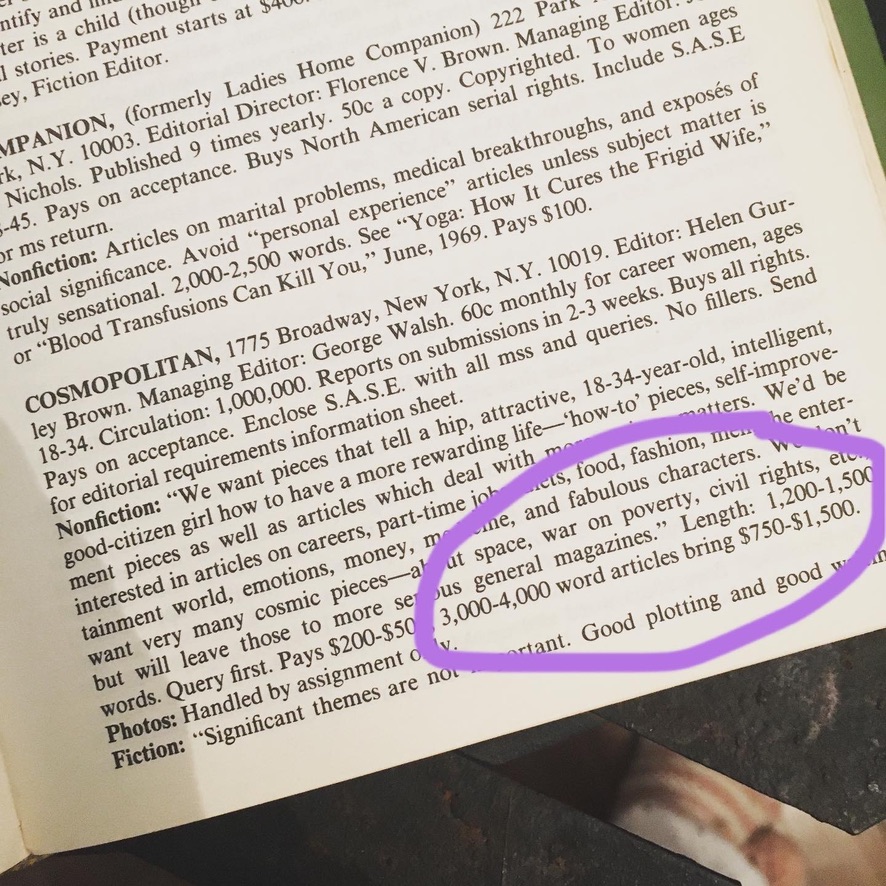Hey everyone,
Ten years ago, while browsing through bookstores in a small town in Wales, I came upon this gem of a book:

I bought it for 50p and have been taking it with me from country to country ever since.
I opened it up a few days ago, just for fun, and look at what I found in there:

It’s fascinating to see how much more we’re expected to do as journalists now (fact-checking, editing, social media, etc), but the rates have either stayed stagnant or, if you take inflation into account, dropped massively. Writing for newspapers and magazines and making good money at it was never a particularly easy endeavor, but when you broke in, it was a somewhat well-paid one. Even when I started, in the early 2000s, large expense accounts and travel budgets were not entirely unheard of.
It’s a different world now. The pictures above tell the story.
And yet, here I am, saying you need to learn how to pitch. You need to know the art of the query letter. You should try and get assignments from magazines and newspapers. Why?
Well, first of all, let’s get the most obvious question out of the way, the one I know most of you want to ask.
Can you make a living writing exclusively for magazines and newspapers?
To that, my answer is it depends. What do you define as a living?
If you’re in New Delhi and you make £2k a month, you’re not only making a living, you’re in the top 1%. If that’s what you’re aiming for, then absolutely, you can make a living writing exclusively for magazines and newspapers, and some writers I know do. That’s not only possible, it’s completely doable.
But if you live in New York or London, or as I do, in Brighton, then £2k a month won’t even cover your basic expenses. I think it’s definitely possible for some people to make double or even three times that, but it’s by no means possible for everyone, especially in today’s market. I have, at times in my career, done just that, but I always knew that there was a cap on how much I could earn writing for publications, and especially in the West, it wasn’t always going to be sufficient. It’s also unreliable.
If you live in a country or city with a higher cost of living and want your income to be consistent, you need to diversify.
And yet, I still thinking learning how to pitch is important.
Let’s say you, like me, want to write books. From the very first moment you start looking at the publishing industry, you’ll see how valuable clips from known publications can be.
For one, when you seek representation with a literary agent or are looking to sign a book deal, where you’ve been published will help make you stand out as an experienced writer and journalist with stories to tell. The editors you know and can name in your book proposal will help you get more interest. The publicity value of being able to reach out to those editors and see if they might consider reviewing or featuring your book is invaluable.
Having all this and being able to tangibly identify it helps you get a better advance. When you’re finally published, knowing how to pitch and therefore, write, for these publications, helps you spread the word about your books. And, of course, I’ve already talked about how you can use publications to pay for your research.
This is why, even though I don’t actively freelance anymore, I’m continue to see writing for magazines and newspapers as part of my business model because it will always be an extremely powerful tool in your arsenal, no matter what kind of writing you’re doing. Writers tend to think of freelancing as a be-all-and-end-all, and it’s certainly where many of us start, but no matter whether you’re an author pitching stories about your book or a journalist using magazines to make an income, you’re going to need to learn how to pitch.
I didn’t even realize how instrumental writing excellent pitches would be to my author career until I got to this point.
Now I’m so grateful that I do.
Not to mention that pitching effectively can help you diversify into other kinds of work as well– content marketing, say, or blogging and ghostwriting for small businesses.
No matter whether you’re an author or a freelancer, you need to learn how to pitch.
Learn this one skill and it will impact your entire career.
Cheers,
Natasha